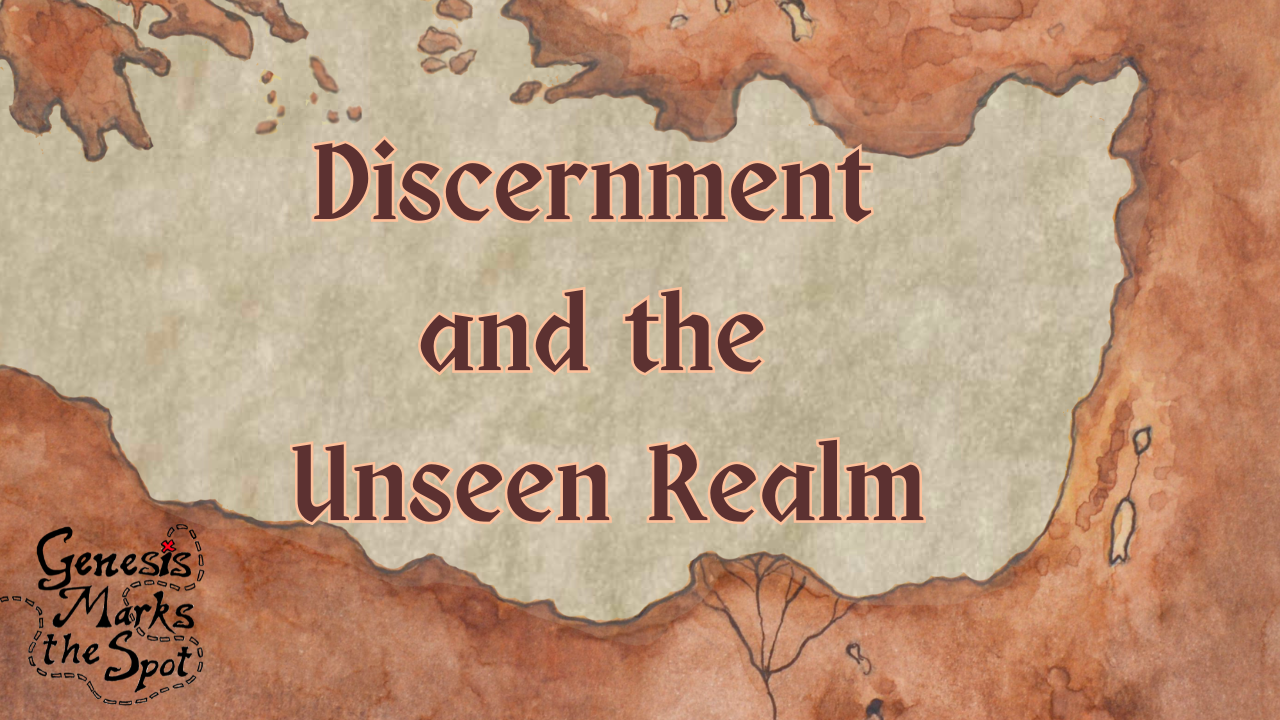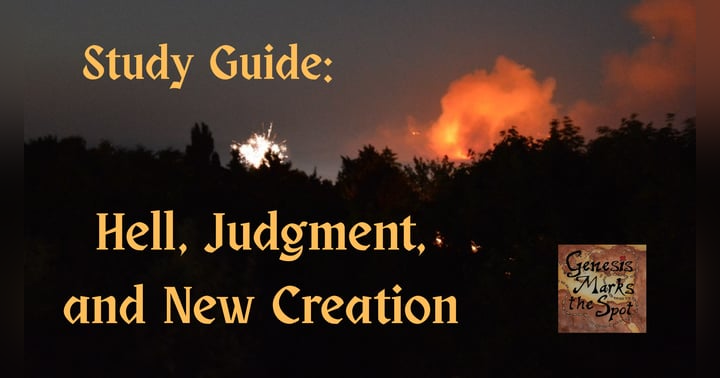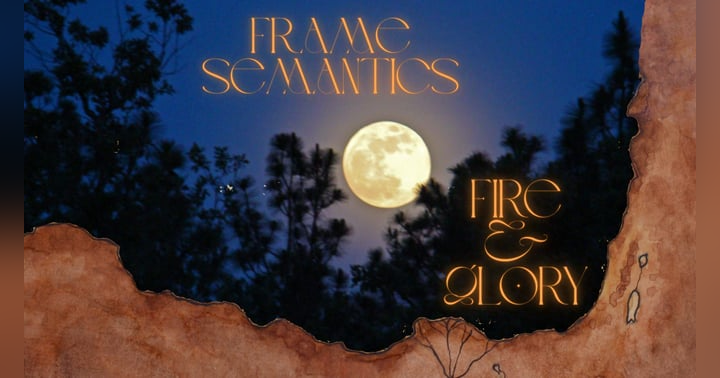Discernment and the Unseen Realm: A Reflection in the Wake of Dr. Heiser’s Work

I have given my thoughts about Dr. Heiser's work in many places, and I won't reproduce them here in full, but it’s worth saying again: his impact on me, and on many others, has been profound. And I think there are many reasons for that which were unique to who Dr. Heiser was and the amazing ministry that God had placed him within.
You see, it wasn’t just his scholarly insight, or his forthrightness, or even his deep commitment to sound biblical theology (although, all of those are essential elements). One of the things that made him different was his ability to dive into the strange and mysterious elements of Scripture without becoming "strange" himself. That alone made him a much-needed breath of fresh air, especially in fringe circles where speculation tends to outpace substance.
Heiser didn’t just teach us about the spiritual world—he offered us a way to think clearly about it. He reminded us that the bizarre passages in Scripture aren’t playgrounds for unchecked curiosity, nor should they be shunned in fear. Instead, they are part of the biblical tapestry, and they deserve serious, contextual study. His work felt to me like a re-centering of the conversation, even though I was new to the whole thing when I found his work. I see how much he did to divert the crazy train to lay down solid tracks again.
In our world of data, data, data, so many people are operating with half-knowledge that ends in overripe speculation, and it all gets treated as if it's one and the same. Quite frankly, Heiser’s work has been, for many of us, an antidote. I can't appreciate Dr. Heiser more for what he did.
Don't Go Off the Rails on a Crazy Train
To follow in the footsteps of the path he blazed, I believe that even though the strange corners of the Bible have been opened up to us, we still need to be cautious in how we approach the study of the unseen realm. And I say that not to be a killjoy or a skeptic, but because we can see what happens when discernment isn’t practiced alongside curiosity. That was the very need for Dr. Heiser to begin with.
Let me try to explain why.
1. The Boundaries of the Text
First and foremost: from a Scripture-is-authoritative standpoint, there’s simply not much we can say definitively about the unseen realm beyond what Scripture (and its context) gives us. We can—and often should—engage with historical church descriptions and theological frameworks, but (at least in my opinion), these are not infallible. They come with their own cultural and historical baggage and they came about in order to answer particular questions in their own time. If you want to treat things like that as having "biblical" authority rather than being contextually-situated responses, well, that's up to you. I'd be okay if we could even just stick with those vs the wild ideas we get today.
We don't stick with these historical ideas, though, and that's part of the problem. We keep the speculation raging, which leads to my next point:
2. The Flood of Speculation
Let’s be honest: the moment you go looking for “more,” you’ll find it. And most of it is nonsense.
There is a ton of speculation out there. And by a ton, I mean....way more than a ton. Once you step outside of Scripture (and even sometimes inside church history) and into the broader internet or fringe literature, you are swept into the flood. And those currents often flow into the strange and speculative—not into grounded, contextual clarity. You see, this is part of what Dr. Heiser was working against.
Now, let me try to be clear. I'm not here to stop anyone from exploring or thinking or what-have-you; in fact, just the opposite, I hope. I think that knowledge and solid data is going to help inoculate us against nonsense and have good ideas, but you see this is the point: we need way more knowledge, and way less speculation. Because, generally speaking, we out to admit that most of us don't even have the knowledge to be able to determine which is which, all the time.
I'm saying that there's a difference between data and speculation. A really big difference. And most people are not going to be able to sift through all that without a long, long time of sitting, first, with the data itself. And that's hard, because the speculation is the fun stuff. But it's the stuff that is also, well, potentially deceptive, if we're honest.
3. It’s Not About Studying the Weird Stuff (or Not)—It’s About What You Do With It
Some people push back when I speak this way. They assume I’m advocating against studying “weird” parts of the Bible or discouraging engagement with the unseen realm altogether.
Not so.
I absolutely think we should be reading these texts, studying the contexts, and learning as much as we can. Again, the problem isn’t with data. The problem is what happens when we leave behind the data and start constructing whole worlds out of the patterns and dots we’re connecting with red string.
Let me say again: the issue isn’t learning. It’s speculation. And speculation, even when wrapped in biblical language, is still speculation, and should be acknowledged as such. And it's not. I know it's not, I see it all the time. Eisegesis, bad hermeneutics...someone grab Ozzy, please, and let's all get off the crazy train.
And yet again: we don’t need to fear the information—but maybe, possibly, we should fear (just a tiny bit!—not for ourself, necessarily, but for others) the outcome that so often accompanies the topic. The topic becomes more than data. It becomes a gravitational pull. It becomes, ohhhh look at this shiny thing!....
And that pull is often toward unanchored speculation straight into a river of nonsense.
And okay, I have to say this, too: speculation is also not the boogey-man. So please don't over-read what I'm saying. Having ideas is part of critical thinking....but not all ideas are the same, and they're certainly not all founded the same. What about "taking a middle road" is so hard to understand in this conversation, I don't know, but I get reactions from all sides when I try to beckon people down this path.
Wisdom and discernment means: watch both sides of the road.
4. Overconcern and the "Christian Middle Earth"
One of the ways I know caution is needed is because I see the circles and conversations that Dr. Heiser frequently entered. They're still around, and they probably always will be.
Dr. Heiser famously referred to a certain subset of Christians as existing in what he called “Christian Middle Earth.” It’s a fitting term. It’s that zone where Christian language and fantasy-world thinking merge. Where theology, mythology, conspiracy, and pseudohistory all swirl together in an almost-alchemical stew.
It looks Christian. It sounds spiritual. But it’s often more narrative than theology. Speculation is not exegetical, historical-critical scholarship.
And perhaps most "dangerously," it’s incredibly entertaining. That's why I've started referring to it, myself, as the Christian Entertainment Complex. It's where good ideas go to Hollywood.
Do you really think that everything on YouTube is worth watching or promoting? That all ideas are harmless? That it doesn't matter what ideas we dwell upon? Really??
Two Ditches, One Road
If you don't think everything is beneficial, then maybe you might agree that I have a point? Part of what I'm trying to say is that we’re not all operating from the same baseline. In fact, I think we might sometimes miss that there are two separate camps—each with its own ditch on either side of the road.
The first camp fears the strange corners of the Bible. They avoid contextual study, shy away from texts like the apocrypha or pseudepigrapha, and resist critical scholarship. Their fear blinds them to what the Bible is actually saying. This is, truly, a tragedy, and Dr. Heiser's work spoke into this sector of Christianity to give people permission to study these things. As well we should!
People who push back on some of the ideas I've given here are rightly concerned about this camp. I am, too. I mean, that's one of the reasons I do this podcast, to help people see that the Bible is far more complex and beautiful than we often allow it to be. There's no question or topic we need fear to explore. We can ask any question we want. We should have an end goal, though. I hope we want to do this exegetically, with good hermeneutics, and that's not easy. Nor will we all necessarily agree on what that looks like. Which, to me, is fine. These are the rigorous conversations we should be having. And amongst those conversations should be the cautions that we each (probably rightly, in different ways) have to bring to the table.
The second camp is the opposite of the first one. These are the "Christian Middle Earth" folks. They don’t fear the strange, at all—they dive in headfirst. But in their enthusiasm, they often enter into more harm than good without realizing it, and this is exactly why Dr. Heiser addressed them specifically. These are the realms of wild speculation, connecting dots that may not belong together, not distinguishing between what’s data and what’s interpretation, between theory and theology.
The weird thing is that even though they are opposite ditches, and in theory knowledge is going to be the solution to some extent for both, I honestly think that the bigger thing to see is that both camps suffer from the same underlying issue: lack of discernment.
How helpful is knowledge, without wisdom?
The Temptation of Story-First Theology
Graham Hancock is a fascinating case study, as are Jonathan Cahn, Gary Wayne, and Timothy Alberino. Their work is compelling not because it's careful and exegetical, but because it’s cool-story-first. They have an intriguing, captivating narrative they are telling, and they find the data that fits it. It ends up sounding so plausible, but tellingly, they do not bring their work to peer-review. Why? Because they aren't interested in peer-review and others testing their ideas. They're interested in storytelling.
This is deeply tempting to follow. We humans are made to be drawn to story; we love story so deeply, and story speaks to our meaning-centers. As, again, it should.
And not only that, but we love resolution. We don’t want mystery to be mystery—we to know.
But this desire to know often becomes a demand, and if by chance our inherent curiosity becomes theological certainty that's primarily based on speculation, we should admit that we're no longer doing exegetical study but building castles in the clouds. That's fine for story hour. That's not-so-fine for biblical study rooted in grammatical-historical context.
I mean, maybe you're going for story hour. Okay. But can I ask you to at least admit it?
Can We, Pretty Please, Have Discernment?
Both the sensationalists (the second ditch) and the hyper-systematic theologians or the fundamentalists (the first ditch) want things in their nice, neat little packages. They don't like to say, "I don't know." Inside their core ideas, they won't include, "we can't know that," or, "this is as far as the data takes us, and anything else is speculation."
But I suggest that it's wisdom to find those boundaries and treat them with respect. I suggest it's discernment. And, here's the direct challenge: I suggest that any Christian teaching any material should provide a level of discernment. You don't need to be a pastor or a theologian or a spiritual advisor to provide that. If you are labeling yourself as Christian and teaching anything Christian-adjacent, then I'd suggest, as disciples of Jesus, we have a duty to provide some form of discernment along with the things we teach. Teaching is not just about providing knowledge, because that's actually impossible to do in a vacuum. Whatever you're teaching comes along with a set of values.
Maybe I'm just a fuddy-duddy brick wall, but I'll hold to it. Please, can we be the kind of people who pursue knowledge for the sake of wisdom?








